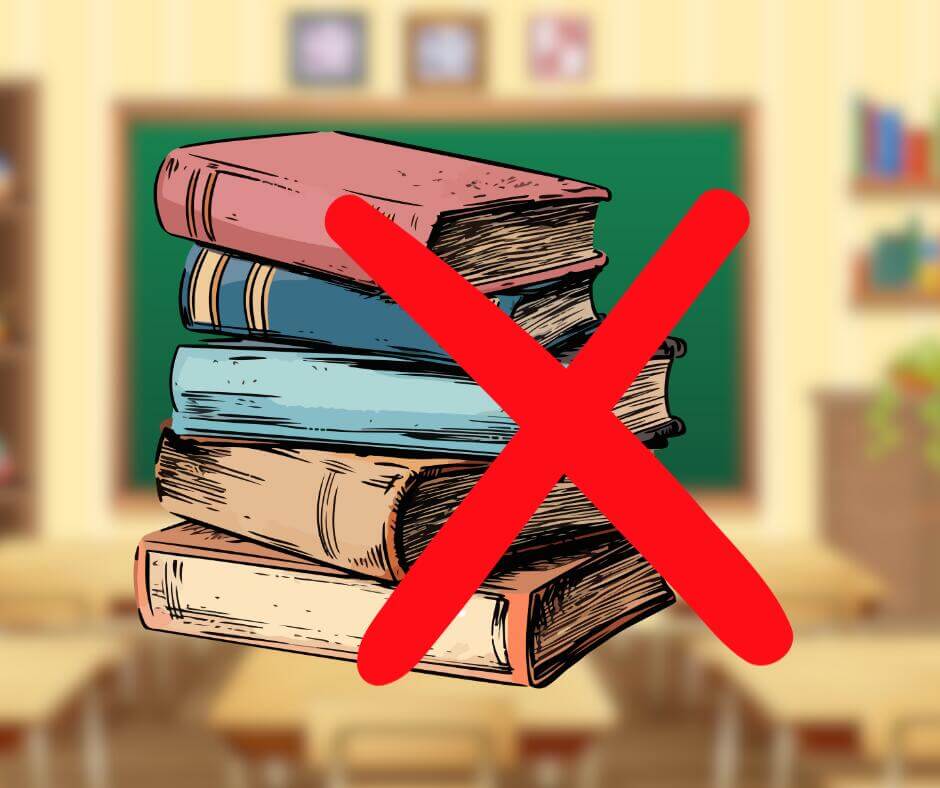As book bans sweep across the nation, state legislatures are taking action, but concerns over the potential impact on libraries are surfacing alongside these efforts. According to a recent report from the American Library Association (ALA), the number of banned books surged by nearly two-thirds in 2023, totaling over 4,200 titles, NBCNews reported.
Alarming figures reveal that approximately 30% of challenged books in schools featured characters of color or addressed race-related themes, while another 30% depicted LGBTQ characters or discussed related topics. Moreover, nearly half of the banned books included instances of violence, and a third contained content pertaining to sexual experiences between characters.
In response, several states including New York, New Jersey, Pennsylvania, Colorado, Oregon, Washington, and New Mexico are pushing bills to combat book bans. These efforts follow similar legislation already enacted in Illinois and California.
However, experts are voicing concerns over punitive measures included in some bills, particularly those targeting school districts and libraries. In states like Illinois and California, legislation threatens fines or withholding of funding if bans are not adhered to, raising worries, especially for underfunded and understaffed institutions.
Deborah Caldwell-Stone, director of ALA’s Office for Intellectual Freedom, emphasized the importance of not burdening smaller or rural communities with overly prescriptive legislation. “Our big concern is not creating a system that would make it so onerous to comply with the bill that it makes it difficult for libraries with fewer resources,” she stated.
Budget constraints also pose challenges. Titles may inadvertently go missing due to damage or lack of funds for replacements. Staff shortages can hinder the review process for books and instructional materials, potentially leading to misinterpretations of state laws.
In Illinois, the newly enacted law mandates that libraries adopt ALA’s Library Bill of Rights to safeguard against partisan or doctrinal disapproval. Failure to comply renders libraries ineligible for state grant money, which makes for a significant portion of their budgets.
State Sen. Laura Murphy of Illinois defended the law’s enforcement, emphasizing accountability and support for inclusive book selections. Similarly, Emily Knox, a professor at the University of Illinois, stressed the necessity of linking funding to ensure compliance.
However, concerns persist over the potential weaponization of funding against libraries. Critics fear that libraries may face repercussions for lacking certain titles on their shelves, although the legislation does not specify content requirements.
Meanwhile, California’s law targets discriminatory removal of books from school libraries, imposing financial penalties on districts found in violation. In contrast, bills in Washington and Oregon focus on anti-discriminatory protections without fines.
Lawmakers in these states are monitoring California’s approach before considering additional measures. Oregon State Sen. Lew Frederick highlighted the simplicity of their bill, emphasizing the prohibition of discrimination in book selection.
As the debate rages on, the overarching goal remains clear: to safeguard access to diverse literature while navigating the complex landscape of censorship and education.
With a keen interest in tech, I make it a point to keep myself updated on the latest developments in technology and gadgets. That includes smartphones or tablet devices but stretches to even AI and self-driven automobiles, the latter being my latest fad. Besides writing, I like watching videos, reading, listening to music, or experimenting with different recipes. The motion picture is another aspect that interests me a lot, and I'll likely make a film sometime in the future.

